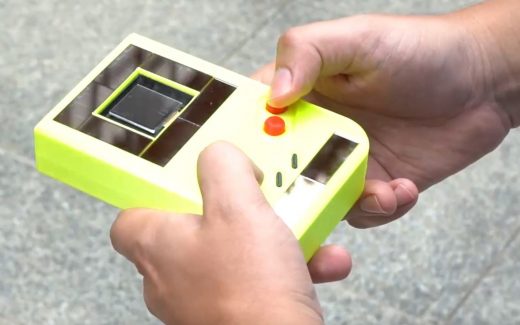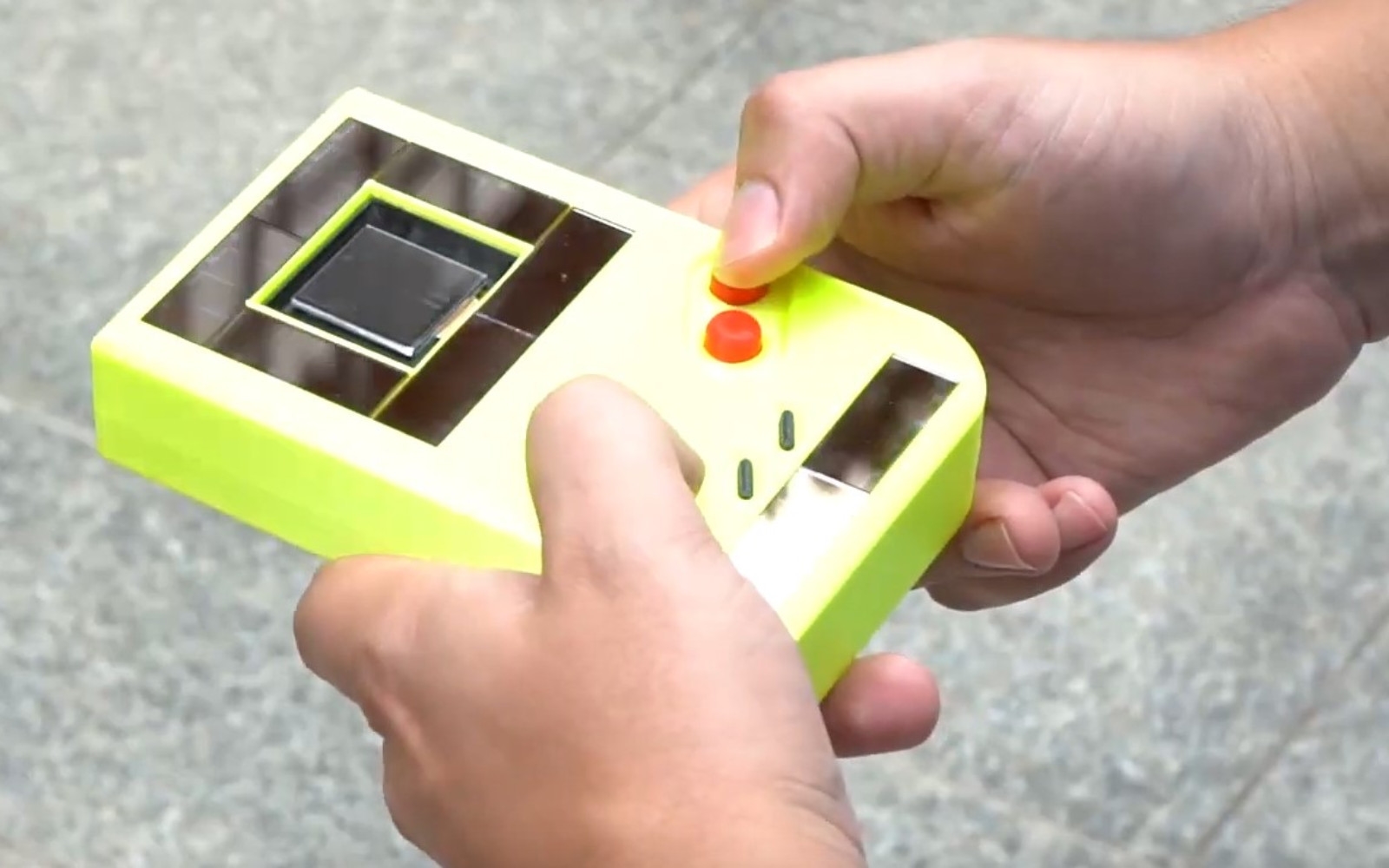Researchers created a Game Boy that doesn’t need batteries
The original Game Boy was no slouch when it came to battery life. With four simple AA batteries, you could play games like Tetris and Super Mario Land for about 10 to 15 hours. That was something that made the Game Boy so much more appealing than its contemporaries. But as it turns out, it’s possible to improve even on a classic.
A team of researchers made up of computer scientists from Northwestern University in Illinois and the Delft University of Technology in the Netherlands has developed a Game Boy that uses no batteries at all.
Instead, all you need to play this Game Boy, officially called the Engage, for hours on end is some sunlight and frantic button mashing. The solar panels attached to the front of the device provide its primary source of power, with your button presses helping to generate additional power.
It’s not a perfect system and there are some major drawbacks. When it’s not too cloudy outside, you can get about 10 seconds of uninterrupted gameplay from the Engage Game Boy before it needs to shut down for about one second. It also can’t play any sounds. But you can still continuously play games thanks to an innovative framework for storing system state data to memory that allows you to pick up exactly where you left off, even if you lost power while in the middle of trying to land the perfect jump in Super Mario Land. While not ideal, this allows you to play slower-paced games relatively easily.
More so than being a fun DIY project, the Engage is a proof of concept. When they set out to build their Game Boy, the Engage team wanted to show that it was possible to create an interactive device that doesn’t need batteries. They know what they’ve created is only a first step. It will take a lot more work before your Switch and other electronics don’t need batteries. But it’s still a significant step forward for the field of intermittent computing.
“This could not have been possible even four or five years ago,” Josiah Hester, one of the computer scientists who worked on the project, told CNET. After presenting their findings at the UbiComp conference on September 15th, the Engage team plans to continue working on their Game Boy. One of the things they want to do is find a way to shorten the power interruptions.
(13)




